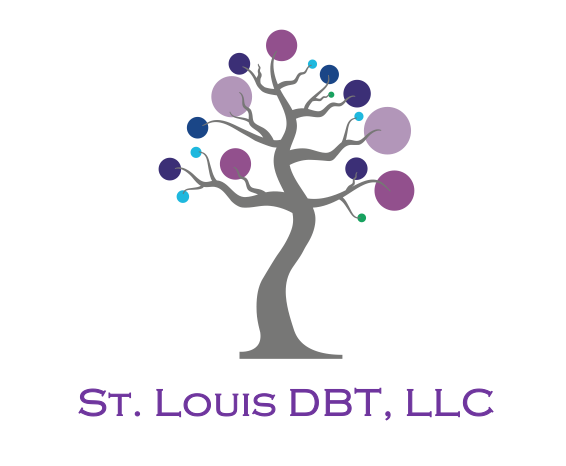The Teen DBT Program includes four components:
1. Individual therapy and periodic family sessions
2. Teen-parent skills group
3. Between-session coaching
4. Therapists consult as a team to keep one another on task and adherent to the model
the program
individual therapy
Most teens are not excited about the prospect of therapy. They generally are in therapy because their parents or school gave them no choice. They may find attempts to “engage” them fake at best and infuriating at worst.
The therapist only has one or two sessions to develop trust that they will be genuine and tell it like it is. When a therapist says, “We’re not here to talk about me. We’re here to talk about you,” their usually unspoken response is most likely “You may be here to talk about me, but I’m not–I never wanted to talk to you in the first place.”
It takes a special kind of therapist to enter a teen’s world without being fake or infuriating. St Louis DBT therapists engage teens where they are.
If music is his passion, our therapist might ask your son to find a song about who he is. If her passion is drama, the therapist might encourage your daughter to dramatize a difficult conversation with her boyfriend. If sports are her thing, the therapist may ask her to frame an issue using sports analogies. The key is to get them a little curious about what they might wind up chatting, joking, or arguing about later.
There are some consistent elements to teen therapy as well. Teens are asked to keep a diary card, something like a journal of the skills they use over the week. They will learn and practice DBT skills in session (as well as in group). Sometimes, the therapist will do chain analysis, identifying the chain of events that led to a problem behavior while identifying the thoughts and emotions that underlie each moment of choice. The therapist will assign skills to be practiced between sessions. Periodically, the therapist and teen will assess progress and identify barriers that may impede progress.
periodic family sessions
At St. Louis DBT, we believe parent involvement in a teen’s therapy is critical to progress. Teens are part of the family system. As such, both teens and their parents must change to achieve the goals that led you to bring your son or daughter to therapy. Learn more.
You will be asked to participate in sessions with your teen sometimes. The frequency will vary from family to family based on the age of the teen and the situation. Parents will be asked to do homework, sometimes with your teen and sometimes separate from your teen. You will be asked to experiment with your teen on new ways of interacting. Your teen’s therapist will offer parenting tips that will help you model appropriate skills.
At the same time, it is important to recognize that it is not your therapy. Your teen’s therapist is obliged to maintain the confidentiality entrusted in her. Your teen needs you to give him or her space to experiment and practice skills (and make mistakes) independently. Your teen needs your support and encouragement without conditions through this challenging time of acceptance and change.
Teen-parent skills group
To speed your teen’s progress and improve your interactions, parents and teens are encouraged to participate in an experiential skills group together, You will learn and practice all of the major skills described below and more. We strongly urge you to participate with your teen in this fun, engaging and interactive group of parents and teens. Learn more about parent-teen skills groups.
between session coaching
Your teen may call, email or text their therapist between sessions for coaching in crisis situations. Calls are intended to last no more than 10-15 minutes. Your teen’s therapist will ask what skills they have attempted and suggest additional skills to try. Your therapist is not a mediator or referee between you and your teen.
DBT: a natural fit
Dialectical Behavior Therapy (DBT) is a natural fit for teens for two reasons. First, the primary developmental goal during the teen years is to prepare for adulthood. DBT teaches lifelong skills that fulfill some important developmental tasks. Second, teens like things concrete. DBT skills are just that. They are concrete behavioral skills that can be learned and practiced until they become nearly automatic, like learning a sport or an instrument. DBT skills are divided into four categories:
~ emotion regulation
~ distress tolerance
~ mindfulness
~ interpersonal effectiveness
emotion regulation
Many teens experience every emotion as anger. Whether they are sad, hurt or fearful, it comes out as anger. Anger is familiar and feels “safe” compared to other emotions that can feel overwhelming and scary. Many teens are afraid to feel because if they allow themselves to feel anything, they may not be able to stop the emotions.
The anger that masks other emotions can be turned inward and lead to depression, anxiety, self-loathing, self-harm or suicidal thoughts and behaviors. Or the anger can be turned outward and lead to promiscuity, drugs and alcohol, fights, trouble at school or legal problems. Either way, emotion regulation is the root of the problem.
DBT teaches teens to identify their emotions and to self-regulate so the emotions aren’t all consuming, so that every emotion doesn’t come out as anger. Teens who learn to regulate their emotions in DBT master an important developmental task that will take much of the drama out of family life and serve them well as adults.
distress tolerance
Things don’t always go as your teen would like. When this happens, some teens react in anger, blaming others or focusing on the unfairness. Others feel like it’s their fault things didn’t turn out as they hoped. They believe if they were smarter, prettier, worked harder or were more lovable the situation would have turned out as it “should” have.
The inability to tolerate distress can make your teen miserable. When your teen is miserable, the whole family is affected.
Distress tolerance skills teach teens to accept what they don’t want to accept, to cope with the stress that comes with not getting what they want. Like emotion regulation, mastering distress tolerance skills is an important developmental task for teens.
mindfulness
Teens cannot change what they don’t know exists. Mindfulness teaches teens to be aware of what’s going on inside and outside themselves so they can respond effectively.
Teens learn to observe and describe their own actions, thoughts and emotions. They learn to identify their goals in any given situation and act effectively to achieve them in the moment.
As they gain self-awareness, they develop a sense of who they are. Developing a self-identity is, perhaps,the most important developmental task of the teen years.
interpersonal effectiveness
Humans are not born instinctively knowing how to interact effectively with others. Interpersonal effectiveness is learned first from parents and teachers. Teens take these first lessons and experiment with different ways of relating with family, friends, boyfriends and girlfriends as well as authority figures, grocery store clerks and inevitably frustrating call centers.
DBT teaches teens to identify the signs of healthy relationships and red flags of unhealthy relationships. They learn to set limits and state their needs while respecting others’ limits and being sensitive to others’ stated needs. They learn to validate others without following the crowd.
They learn how to be intimate with others, balancing emotional safety and vulnerability, bringing some people closer while distancing others, all the while learning through trial-and-error to trust their intuition about who is trustworthy and who isn’t.

